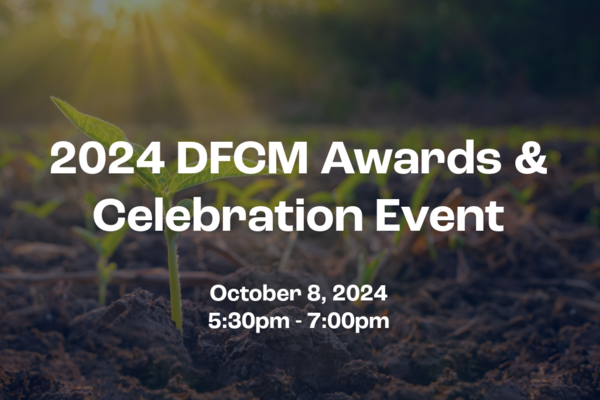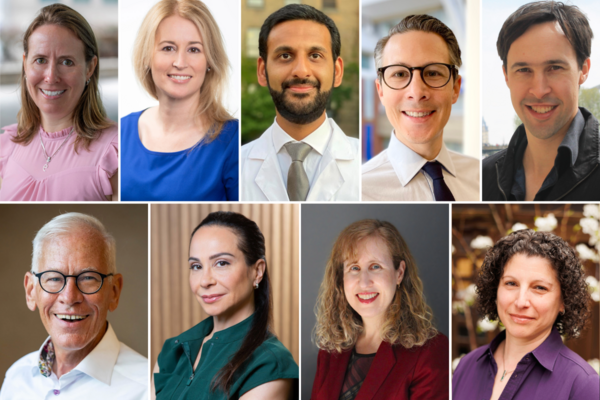DFCM researchers awarded funding to continue work on innovative virtual care curriculum

Many routine health care practices had to be adapted quickly in response to the COVID-19 pandemic. With quarantining and social distancing measures put in place to mitigate the spread of the virus, family doctors and learners swiftly turned to alternatives for in-person care with some more prepared than others to acclimate to the virtual environment.
“Back in March 2020, we all started doing virtual care because we had no choice. Those of us who had clinical experience could apply our skills in clinical reasoning to this new virtual environment, but incoming learners were quite new to any clinical context, never mind a virtual context which they had no exposure to at the time. So, we knew we needed something to catch them up,” says Dr. Batya Grundland, a family physician at Women’s College Hospital, and an Assistant Professor and Associate Program Director of Curriculum & Remediation in the Postgraduate Residency Program at the University of Toronto Department of Family & Community Medicine (DFCM).
To address the urgent need for training in virtual care, Dr. Grundland and other Education Program leaders at DFCM formed an emergency committee and created the Virtual Care Competency Training Roadmap (ViCCTR) curriculum. Developed in collaboration with DFCM faculty and learners, each of ViCCTR’s six online modules present various virtual care scenarios to teach new concepts with the aim of building clinical reasoning skills.
Clinical reasoning — the way a clinician diagnoses and manages a patient — is highly dependent upon the context, communication method and many other factors. “Research suggests that there might be a different clinical reasoning process required in the virtual environment. You can imagine that compared to an in-office visit, it’s different for a doctor to assess, diagnose or manage a patient via the phone or video. Our goal is to transform their clinical reasoning practice to meet new demands,” says Dr. Nicole Woods, ViCCTR’s co-lead and supervising principal investigator. Dr. Woods is also a Research Institute Director at UHN and an Associate Professor and Education Scientist in the Office of Education Scholarship (OES) at DFCM.
Another skill the ViCCTR modules aim to build is called adaptive expertise: the ability to adapt knowledge and ways of thinking to novel and complex situations. Learners are provided with a case and then asked questions about how they would handle it in a virtual context. After working through the case on their own, they are provided with information about what is recommended to handle the situation.
“The way the modules are designed are intentional and rooted in education science. Challenging learners to think through a problem before they’re told how to think through it allows them to practice this skill of adaptive expertise,” says Dr. Grundland.
“The moment of struggle in attempting to answer problems they haven’t seen before opens up the opportunity to learn more,” adds Dr. Woods. “We could have simply provided information and resources on how to do virtual care, but the intent here is to go beyond that and develop that skill of adaptive expertise. So, we built the modules using the pedagogical tools we know support that.”
Uptake of the ViCCTR curriculum was swift, extending beyond its roots. The first version was implemented in June 2020 as a mandatory course for all residents—to great success. The team received overwhelmingly positive feedback from residents, faculty and practising clinicians across U of T and health partners, who felt supported during a confusing time.
“Our modules also include fully fledged, helpful guides that many have told us they reference again and again,” says Dr. Grundland.
Currently, ViCCTR is being offered in many places, including at U of T’s Department of Medicine, Collaborative Change Leadership and Cancer 360. It has been presented at a number of academic medicine events locally, nationally and internationally—and interest in it continues.
New grant to further research on virtual care
In June 2022, the ViCCTR team achieved further validation of their work. They were awarded $83,000 from the Physicians’ Services Incorporated (PSI) Foundation to conduct a second, more in-depth virtual care study and expand the curriculum’s content and reach.
“This is an incredible opportunity for education research. PSI has highly competitive grants, and over $80K is a very big deal,” says Dr. Woods.
In this phase of research, the team will take a deeper dive, approaching the research from multiple angles. They are working on creating more courses with even better quality and more relevance, and ensuring current ones are up-to-date.
“What’s interesting here is the context: how have the decisions changed now that the patient visit is virtual? This has the potential to be very meaningful in terms of making dramatic changes in the way that physicians make their decisions and how they interact with their patients. And this matters because we have to think about how we’re going to train the next generation of physicians to do virtual care as a core part of their everyday practice,” says Dr. Woods.
“Optimal virtual care is about the transformation of clinical reasoning and the development of medical expertise,” says Dr. Risa Freeman, DFCM’s Vice-Chair of Education, who put together the committee of education scientists, faculty and education specialists that designed the initial plan for ViCCTR. Other education leaders at DFCM are part of the team including Dr. Azadeh Moaveni, Director of the Undergraduate Education Program; Dr. Stu Murdoch, Director of the Postgraduate Education Program; Dr. Mahan Kulasegaram, Director of the Office of Education Scholarship; and Dr. Karina Prucnal, Associate Program Director of Admissions, Awards & Recruitment; as well as Dr. Maria Mylopoulos, a Curriculum Scientist at Temerty Medicine, and Associate Director of The Wilson Centre, an educational research centre at UHN.
Dr. Grundland says ViCCTR is a testament to the potential of teamwork by OES and DFCM’s Postgraduate Program. “We are so humbled by the response to this remarkable project, which really came together by the power of collaboration.”
Access DFCM’s free ViCCTR modules here. For any inquiries about collaboration or research, email dfcm.pgcurriculum@utoronto.ca. Learn more about DFCM’s OES and Postgrad Program.
News



